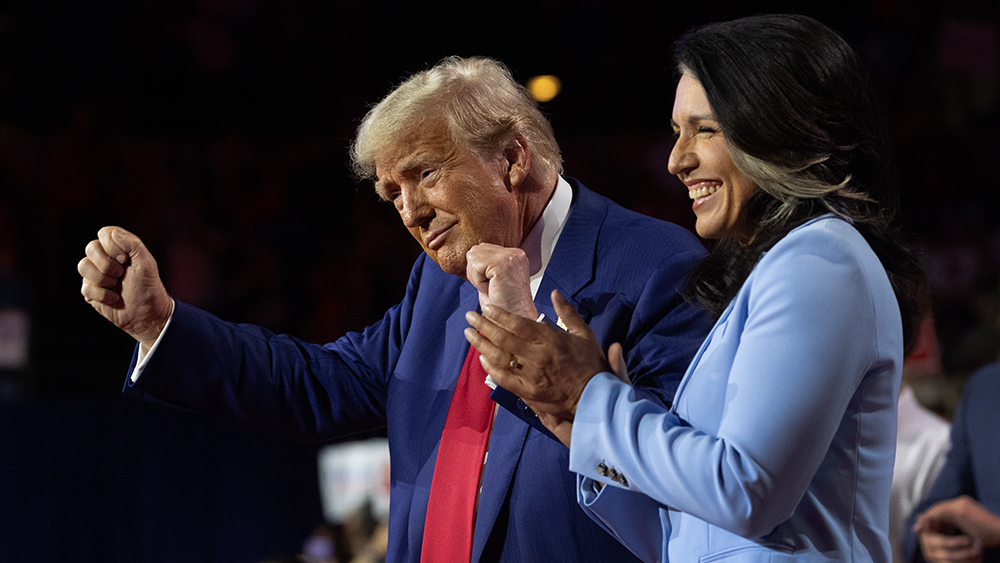 Parler
Parler Gab
Gab
- NPR CEO Katherine Maher faced intense Republican scrutiny over her past racially charged social media posts, including endorsements of reparations and claims about white supremacy, raising concerns about her ability to lead an impartial, taxpayer-funded network.
- Maher repeatedly claimed not to recall or have "evolved" views on controversial tweets, undermining her credibility with lawmakers who questioned her fitness to oversee NPR’s mission of unbiased journalism.
- Republicans highlighted NPR’s lopsided coverage — dismissing Hunter Biden’s laptop while amplifying Trump-Russia collusion claims — and cited stark ideological imbalances in its staff (87 Democrats, 0 Republicans), fueling accusations of progressive activism over neutrality.
- Critics argue NPR and PBS have strayed from their original mandate of impartiality, with growing calls to reevaluate their federal funding due to perceived partisan leanings and lack of accountability.
- The hearing intensified pressure on NPR to address bias concerns or risk losing public trust and government support, as lawmakers warned it has become a "propaganda wing" of the Democratic Party.
Maher’s selective memory on past statements
Under questioning from Rep. Brandon Gill (R-TX), Maher struggled to explain a 2020 tweet in which she wrote, "I grew up feeling superior—ha, how white of me." When pressed on whether she believed white people inherently feel superior to other races, Maher denied the claim but offered a muddled defense: "I think I was probably reflecting on what it was to be — to grow up in an environment where I had lots of advantages." Gill countered, "It sounds like you’re saying that white people feel superior." Maher’s ">memory gaps extended to other controversial posts, including one where she appeared to endorse financial reparations ("Yes, our original collective sin and unpaid debt. Yes, reparations.") and another where she dismissed outrage over looting as "counterproductive" rather than morally wrong. When confronted with these statements, Maher repeatedly claimed she did not recall them or insisted her views had "evolved." Critics argue that such evasiveness is unacceptable for a CEO overseeing a federally funded institution. "If you can’t even stand by your own words, how can we trust you to lead an organization that’s supposed to be objective?" Gill pressed. Maher’s responses did little to reassure lawmakers, fueling accusations that NPR’s leadership is more invested in progressive activism than balanced journalism.A pattern of bias at NPR
The hearing also scrutinized NPR’s editorial decisions, with Rep. Pat Fallon (R-TX) highlighting stark disparities in coverage. NPR dismissed Hunter Biden’s laptop as a "waste of time" in 2020 while giving extensive airtime to now-debunked claims of Trump-Russia collusion—interviewing Rep. Adam Schiff (D-CA) 25 times but never Oversight Committee Chairman James Comer on the Biden family’s foreign business dealings. Fallon also cited a Media Research Center study showing PBS NewsHour used the term "far-right" 162 times compared to just six mentions of "far-left"—a 96% skew. PBS CEO Paula Kerger deflected, saying she would "want to see how they did that analysis." Meanwhile, NPR’s newsroom reportedly had 87 registered Democrats and zero Republicans, a fact Maher called "concerning" but did not dispute. These revelations reinforced long-standing conservative grievances about media bias. "You’re not just leaning left—you’re falling over," Fallon remarked. The lack of ideological diversity in NPR’s staff, combined with its uneven coverage, has led many to question whether the network can fairly represent all Americans, particularly given its reliance on taxpayer dollars.Public media’s trust crisis
NPR and PBS were founded with the noble mission of providing balanced, educational content free from commercial pressures. Yet critics argue that in recent decades, both networks have drifted toward progressive advocacy, alienating conservative audiences. The hearing evoked memories of past scandals, such as NPR’s firing of Juan Williams over comments about Muslims, which critics saw as ideological enforcement. Maher’s inability to account for her own racially charged statements—while insisting NPR is unbiased—mirrors a broader credibility crisis in legacy media. If leadership cannot acknowledge personal bias, how can the institution credibly police its own reporting?Accountability for taxpayer-funded media?
The hearing underscored deepening Republican skepticism toward public broadcasting, with lawmakers vowing to scrutinize its federal funding. "Billions have gone into both of your coffers over the last several decades," Fallon said. "You’ve become a propaganda wing of the Democratic Party." Whether Maher’s evasiveness was strategic or genuine remains unclear. But for an organization sustained by taxpayer dollars—and legally obligated to serve all Americans—the burden of transparency is non-negotiable. If NPR cannot confront its own biases, the public may rightly question whether it deserves their trust—or their money. As calls for defunding NPR grow louder, the network faces a critical choice: reform its practices to restore public confidence or risk losing its government-backed financial support entirely. The stakes could not be higher for an institution that once prided itself on being a trusted, nonpartisan voice in American media. Sources include: ZeroHedge.com X.com ">YouTube.comOracle faces backlash over data breaches that have exposed millions of customer records
By Willow Tohi // Share
California’s gas prices: A crisis of its own making, USC study finds
By Willow Tohi // Share
Gabbard calls Trump the “Peace President” despite his support of attacks on Yemen and Gaza
By Ramon Tomey // Share
U.S. airstrikes cut off water for 50,000 Yemenis, escalating humanitarian crisis
By Willow Tohi // Share
China completes major live-fire drills targeting Taiwan ports, energy sites
By Willow Tohi // Share
Governments continue to obscure COVID-19 vaccine data amid rising concerns over excess deaths
By patricklewis // Share
Tech giant Microsoft backs EXTINCTION with its support of carbon capture programs
By ramontomeydw // Share
Germany to resume arms exports to Israel despite repeated ceasefire violations
By isabelle // Share










